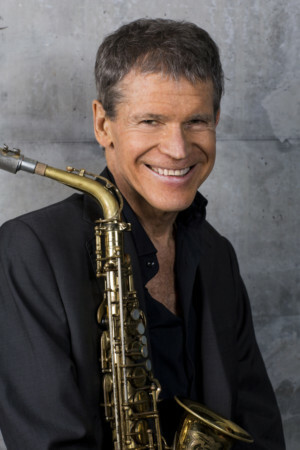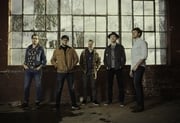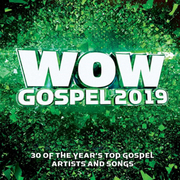New York, NY (Top40 Charts) Jazz saxophonist
David Sanborn will perform with his new quintet at Kean Stage's Enlow Recital Hall at 3 p.m. on Sunday, February 10.
Sanborn is excited about playing with this particular group of artists - Michael Dease on trombone, Andy Ezrin on piano/keyboards, Ben Williams on bass and Billy Kilson on drums.
"We're redefining the tunes as we go," said Sanborn. "Every night, we have a different way of approaching the songs. I really like that sense of spontaneity and being surprised by what goes on onstage. I'm always curious to try different ways of playing to keep myself interested."
A lot has changed for Sanborn since that historic day 50 years ago when he performed with the Paul Butterfield Blues Band at Woodstock.
"We were the second to last act, right before Jimi Hendrix," he said. "We hung out for seven or eight hours backstage before we went on. It was exhausting."
How does he look back on that watershed moment?
"When you're in the middle of it, you don't really see it as a historic event," he said. "We played a whole bunch of big festivals during that time period. There was a real sense of community, a sense of music as an engine for social change. And the music by and large was pretty great."
Sanborn first took up the saxophone as therapy after contracting polio as a child. By age 14, he was performing with legends Albert King and
Little Milton. He studied music at Northwestern University and the University of Iowa before joining the Paul Butterfield Blues Band.
If asked, he is happy to talk about his career highs - winning six Grammy Awards, hosting a late night television show on NBC and performing with icons such as Gil Evans, Charlie Hayden,
James Taylor,
Paul Simon and Stevie Wonder. He even played the famous solo heard on
David Bowie's "Young Americans." But he tends to not look back on his career, preferring to focus on the here and now.
"To me, it serves no purpose," he said. "I've had a lot of great experiences, but life moves on. You grow and change. For some people, music is an exercise in nostalgia. It's not that way for me. I try to keep doing what I do and get better at it. I'm always curious about what's around the next corner."
For Sanborn, his next venture includes an internet show currently in production that he is hosting in his home studio. Each episode brings together two musicians from different disciplines, who on paper have nothing in common. It's like an informal jam session, in which the artists perform solo and together, and talk about their creative process. One episode pairs folk rock singer Jonatha Brooke with jazz guitarist Charlie Hunter.
"Genres of music don't really exist in the minds of most musicians," said Sanborn. "This is what I've been interested in all of my life, breaking down the barriers between different styles of music."
























